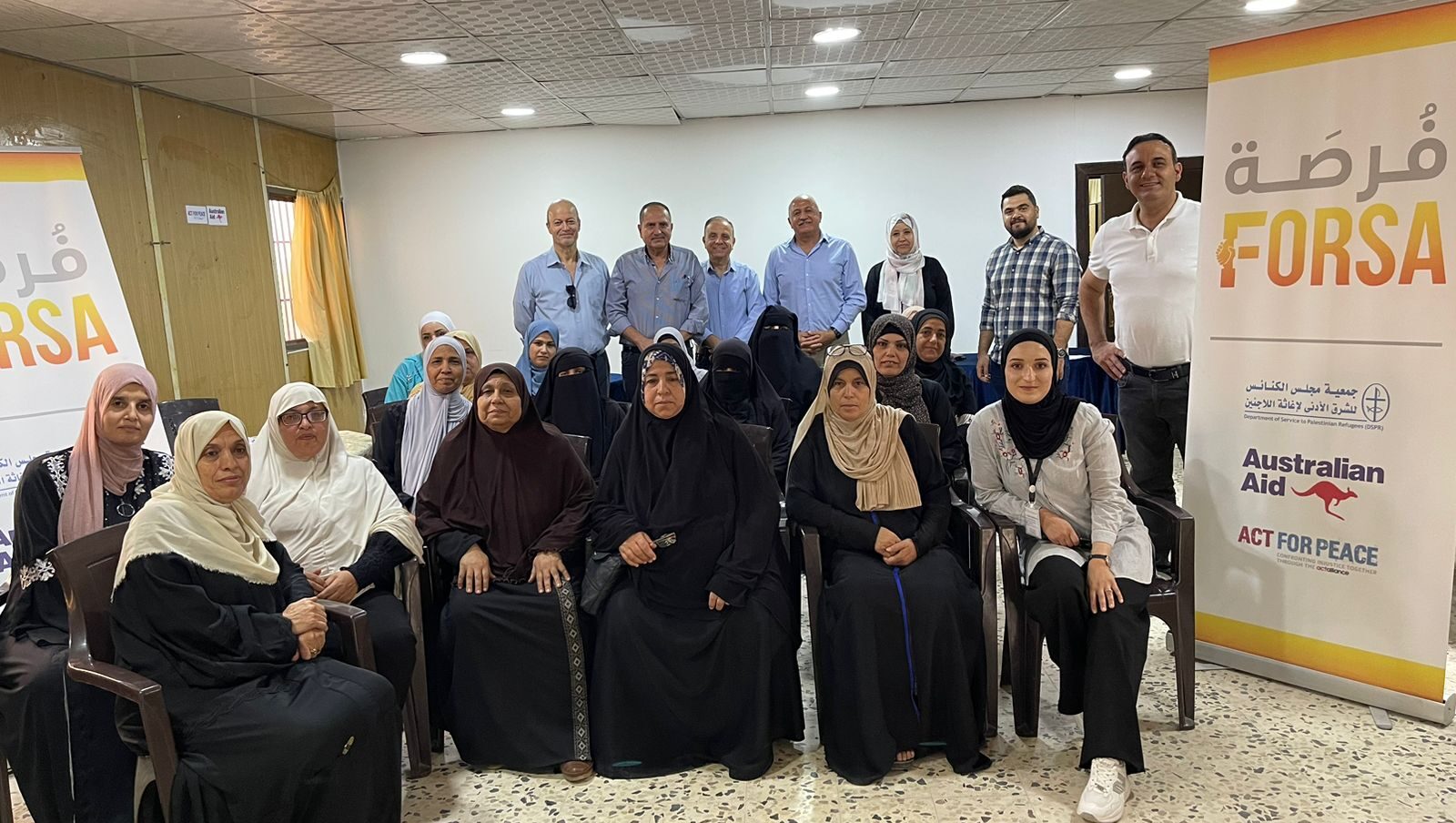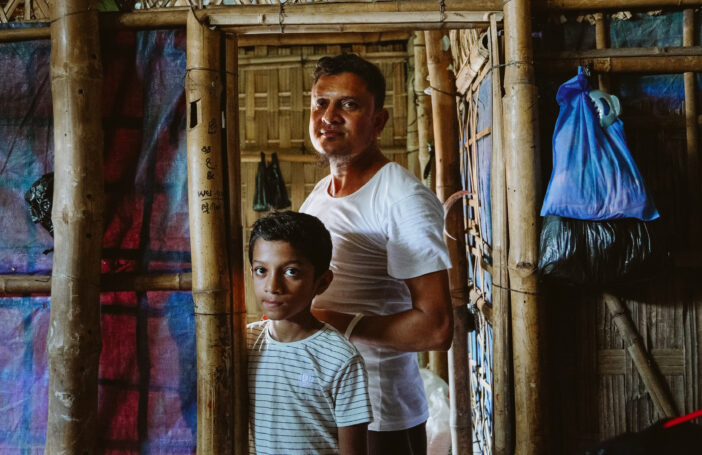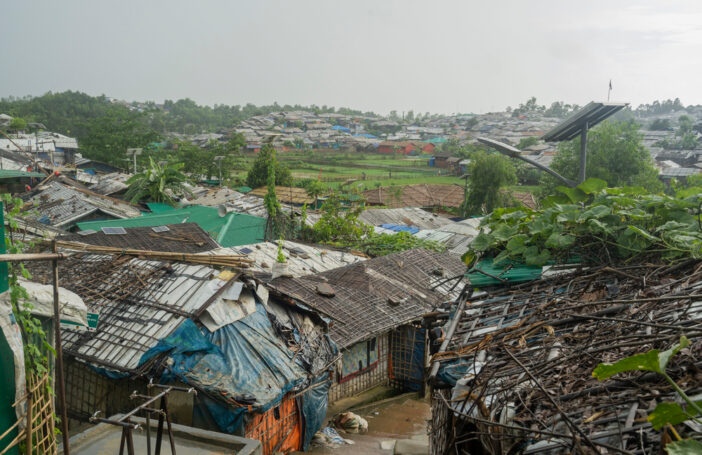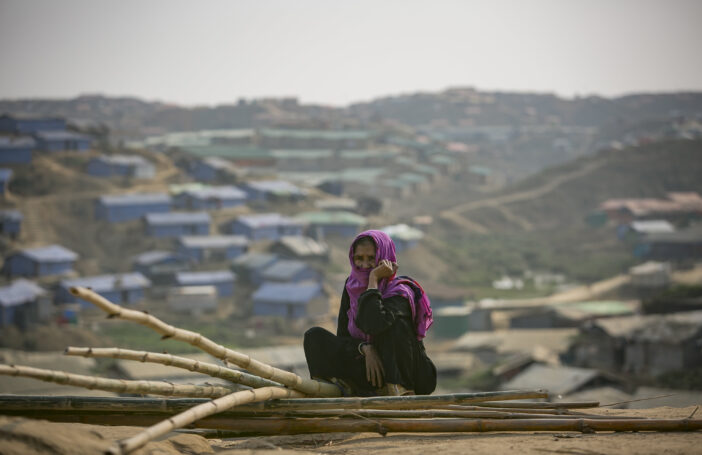“[After arriving in Jordan] life became very difficult. Living as a refugee without long-term support or the same rights as citizens meant that we did not have access to the basics to support our family. I had lost hope for the future.”
These words from a Syrian refugee illustrate how people who are displaced can remain trapped in a cycle of aid dependency if they’re not empowered to become self-sufficient.
The Jerash or “Gaza” camp is one of the poorest refugee camps in Jordan and faces shortages in essential services like healthcare, protection, education and livelihoods. It is “home” to both Palestinian and Syrian refugees, including Palestinians displaced from Gaza following the 1967 Arab-Israeli war and Syrians displaced by the civil war that began in 2011.
Youth unemployment is an issue, and women face even higher barriers to find work. Refugees are often forced to resort to negative coping mechanisms to make ends meet, including skipping meals, begging, child labour, early marriage, selling assets, or resorting to exploitative or dangerous jobs. Moreover, the lack of opportunities, coupled with the stress and strain on families can exacerbate protection risks such as gender-based violence and poor mental health.
Holistic support, tailored to the unique needs, strengths, and aspirations of individual households, is key to empowering refugees to rebuild their lives. While initiatives such as vocational training for youth and support for women starting small businesses exist in Gaza camp, and for refugees in Jordan more broadly, there is a lack of holistic support that ensures sustainable livelihood outcomes. This type of support must also address other barriers, such as protection risks, which often undermine the long-term success of these livelihood efforts.
Without opportunities for social and economic empowerment that are comprehensive and tailored to the needs, strengths, and aspirations of individual households, refugees living in Gaza camp remain trapped in a cycle of aid dependency. Amid the complex challenges refugees face in the camp, the Forsa project was piloted between 2022 to 2024 with an initial caseload of 50 households. Funded by the Australian aid program’s Australia NGO Cooperation Program, the program design is modelled on the multi-year Graduation Approach, developed through working with refugees in Bangladesh. “Forsa meaning opportunity – Pathway out of Poverty for Syrian and Palestinian Refugees” is a strategic investment in the human capital and resilience of communities striving for self-reliance.
The Graduation Approach, first pioneered in 2002 by the Bangladesh Rehabilitation Assistance Committee (BRAC), has demonstrated significant impact across diverse contexts over the following decades. For instance, several donors have supported the Resilient Youth, Socially and Economically Empowered (RYSE) Consortium, which comprises organisations including the Danish Refugee Council (DRC), Mercy Corps, Generations for Peace, Jordan River Foundation and Injaz. In 2020, the consortium began implementing the approach with 25,000 youths in Jordan.
What sets the Forsa project apart is its implementation by a local organisation and deep commitment to maintaining a locally led approach. Implemented between 2022 and 2024 by the Near East Council of Churches Commission for Refugee Works (Jordan area committee of the Department of Services for Palestinian Refugees – DSPR Jordan) and supported by the Australian NGO Act for Peace and the Australian Government, the Forsa project is a holistic response that uses a time-bound set of sequenced interventions over two years to support families to address protection threats and build sustainable livelihoods. The ultimate goal is to empower these families to graduate from the program and achieve self-reliance.
Forsa’s methodology is rooted in empowerment and community-based approaches, designed to nurture the livelihood capabilities of vulnerable households by building skills and knowledge. This approach provides families with the time, space, and security they need to build their livelihoods. Central to the project’s design is a belief in the agency of each refugee, positioning them as active participants and architects of their own futures, rather than passive recipients of aid.
In the first phase, Forsa offers targeted mentorship through fortnightly home visits and monthly cash assistance to support households during their journey towards economic stability. Participants have access to financial literacy training and services, business skills development, vocational or technical training of their choice, business grants, and a range of other targeted supports to help them plan, start, and grow their small business. The scope of project services and activities is wide, with all fifty households encouraged to participate in every aspect to achieve the most impactful and sustainable outcomes. This approach requires a significant investment at the household level, focusing on a smaller cohort of participants. During this pilot, approximately $782,000 was invested in the self-reliance journeys of these 50 households, averaging around $15,000 per household over two years of intensive participation.
In early 2024, the Forsa pilot concluded, having delivered significant impacts. Notably, 72% of households met all mandatory Graduation Criteria, indicating graduation to self-reliance — exceeding the project’s original target of 60%. These criteria measure progress across various domains of self-reliance including improved income, food security, savings, confidence, social connections, and other indicators of empowerment. Even among households that did not meet the full Graduation Criteria, the positive impacts remained significant. All households reported improved food security, while 96% of households saw an increase in savings. Additionally, 94% of households reported employment opportunities for previously unemployed family members, 90% experienced a significant increase in income, and 84% of indebted households reported a decrease in debt burdens.
Despite these positive outcomes, the project faced many challenges. Structural constraints in Jordan’s labour market, along with regulations restricting work permits and the types of jobs available to refugees, posed significant obstacles. In the Jerash context, there is a shortage of employment opportunities, conservative gender attitudes hindered women’s participation in livelihood activities, and barriers persisted for people with disabilities. Additionally, high levels of existing debt, poor financial literacy, food insecurity, child protection and mental health issues, and a scarcity of essential services in the camp further complicated the situation.
These challenges were addressed and overcome through a range of measures, including baseline market research and job matching, business start-up support and grants, household capability-building, and promoting positive behavior change. A robust referral mechanism was established to connect participants with complementary services, while efforts were made to identify and address barriers to inclusion.
The success of the Forsa project lies in its comprehensive and personalised multi-year support for refugee households, unlike other approaches that prioritise reaching as many participants as possible with minimal or short-term impact. While life in Gaza camp remains challenging, the success of the Forsa project bears testament to the transformative potential of community-led interventions in alleviating poverty and building resilience and self-reliance for refugees.






This is a commendable summary about the lives of refugees and positive support of them, in Jordan a country caught between too many local conflicts. I noticed on the banner in the photo that the Australian Government is involved.
This article should be presented – forcefully – the Australian media, detailing how refugees live and why Australian aid matters. Not often publicised and the impacts of our aid are too often forgotten.